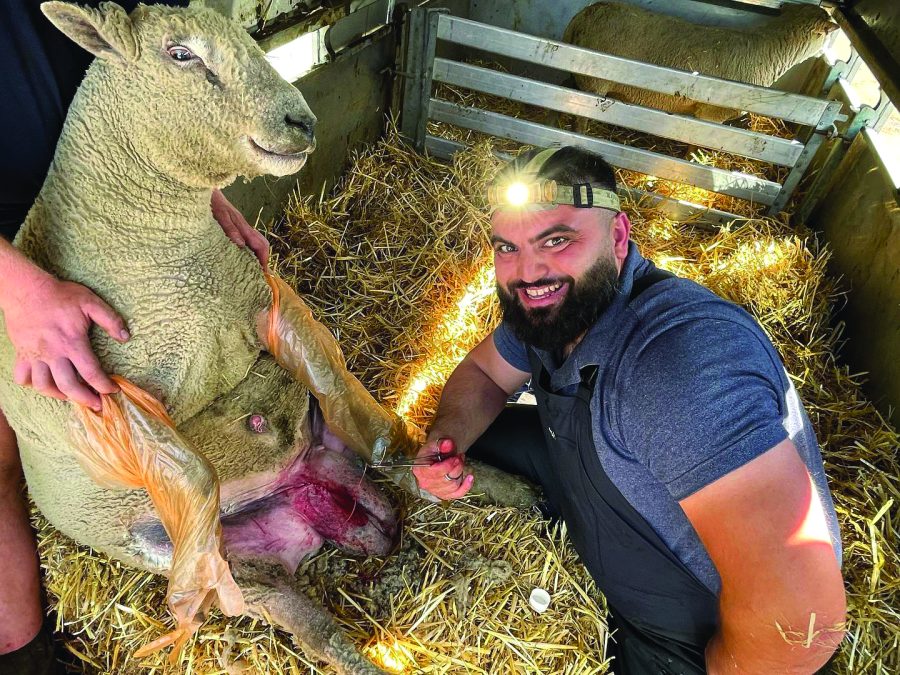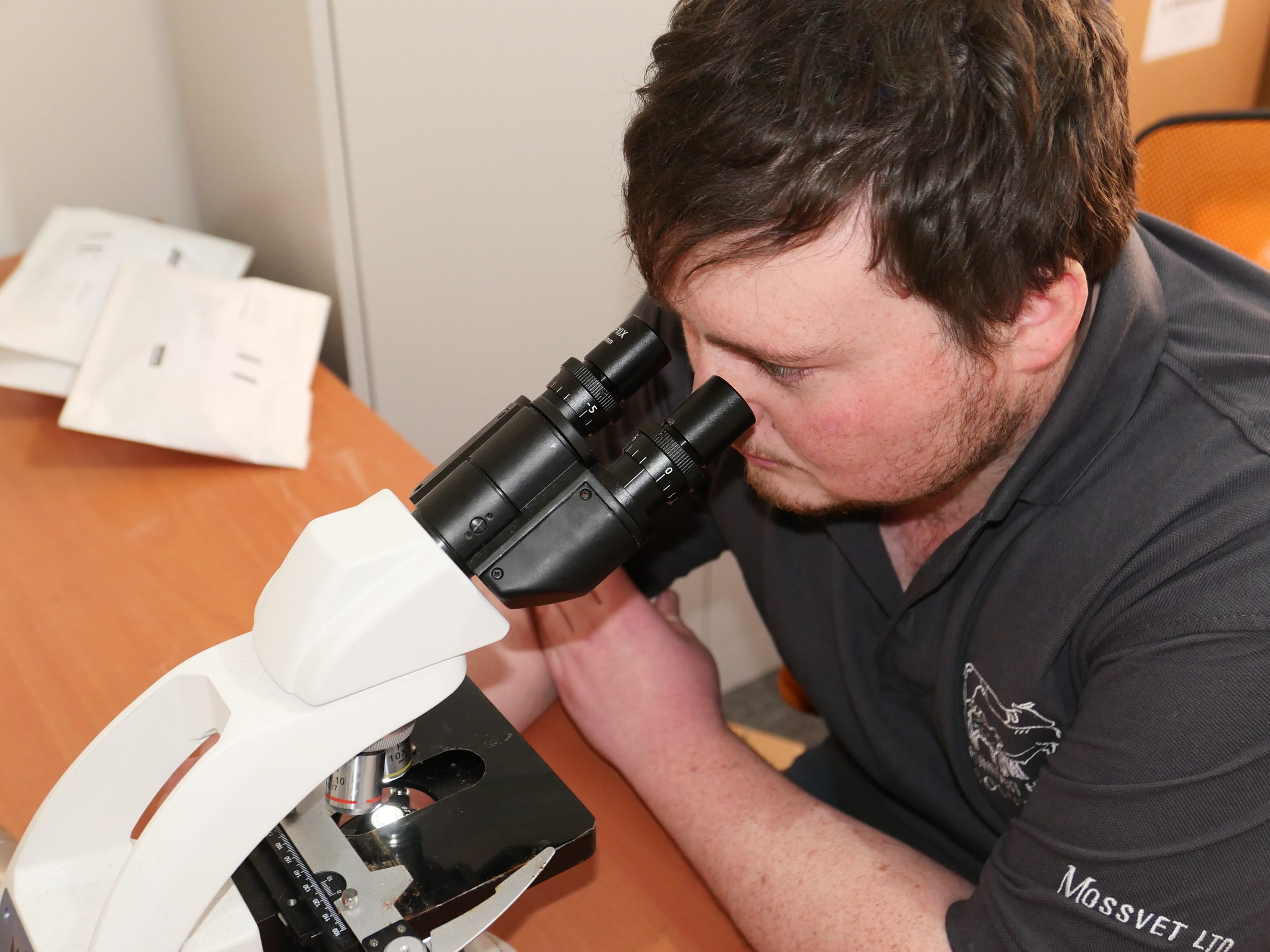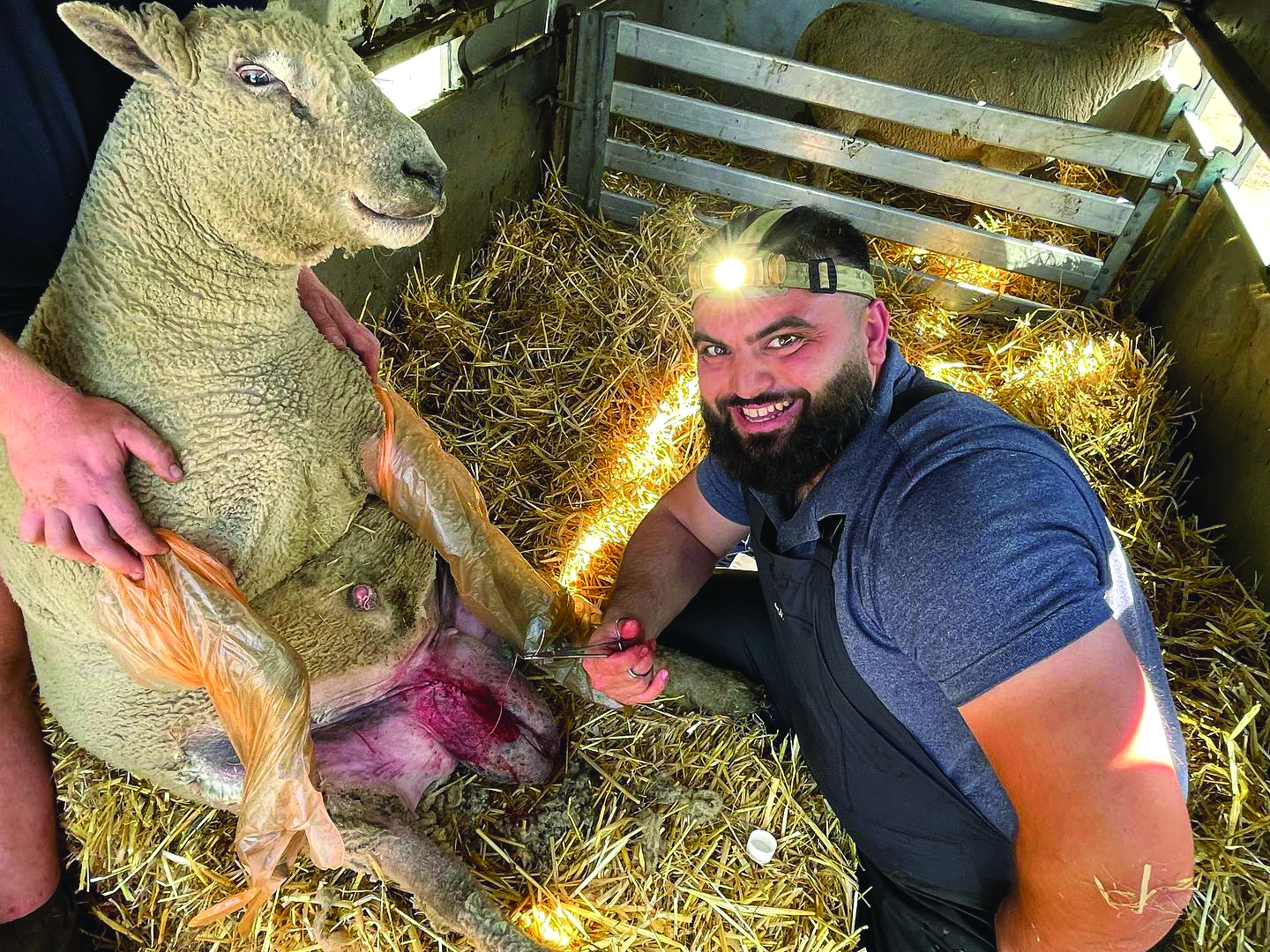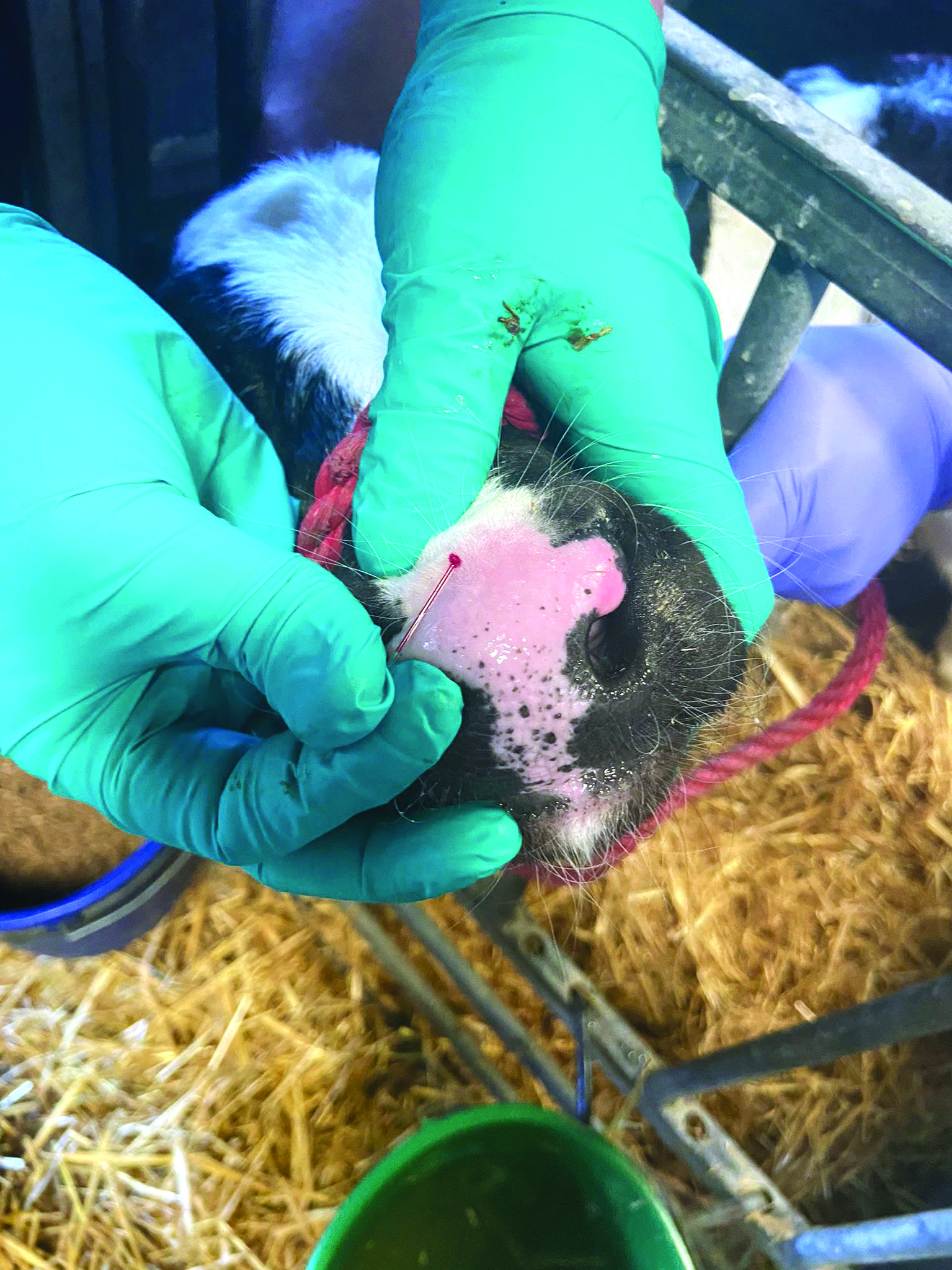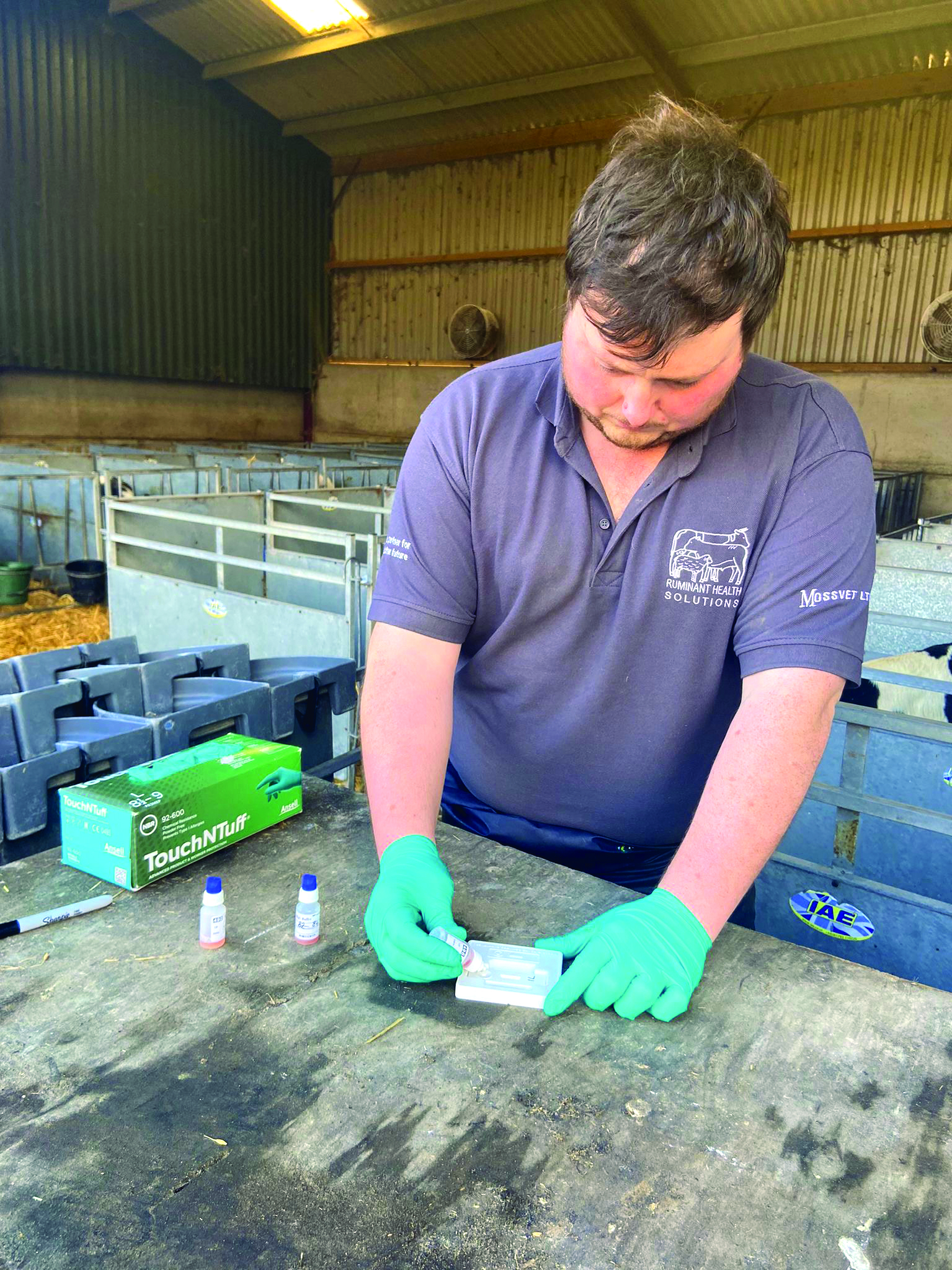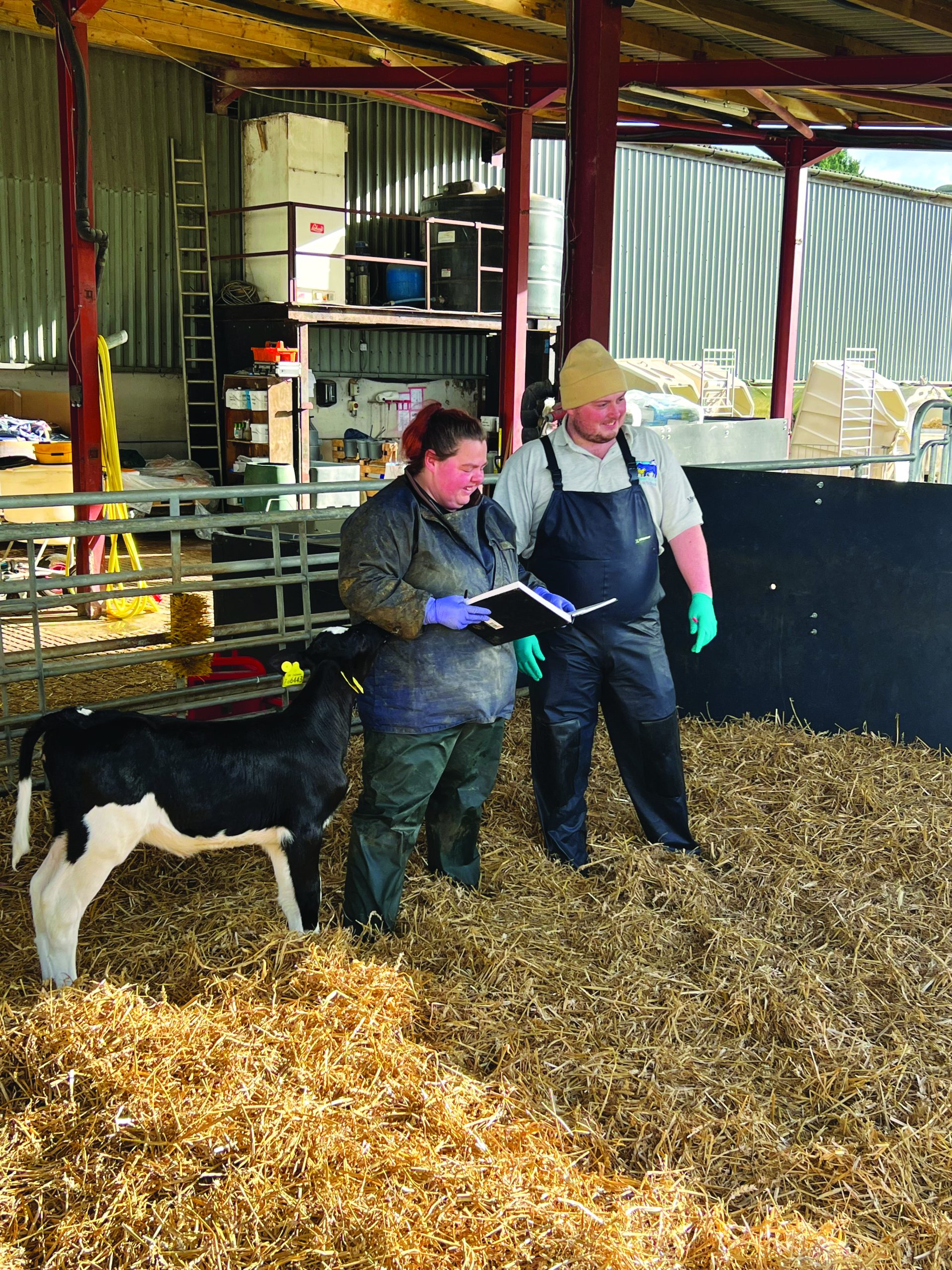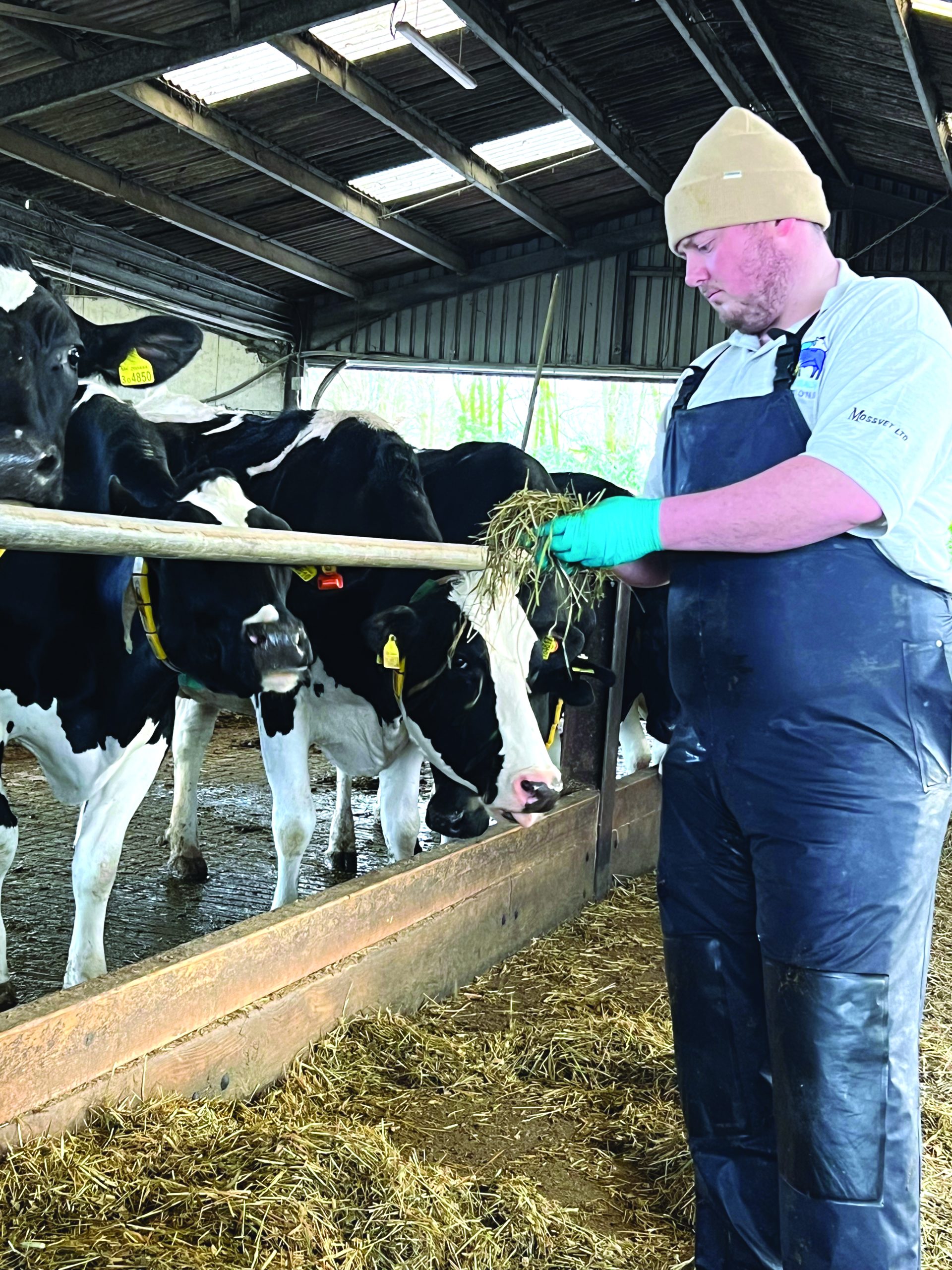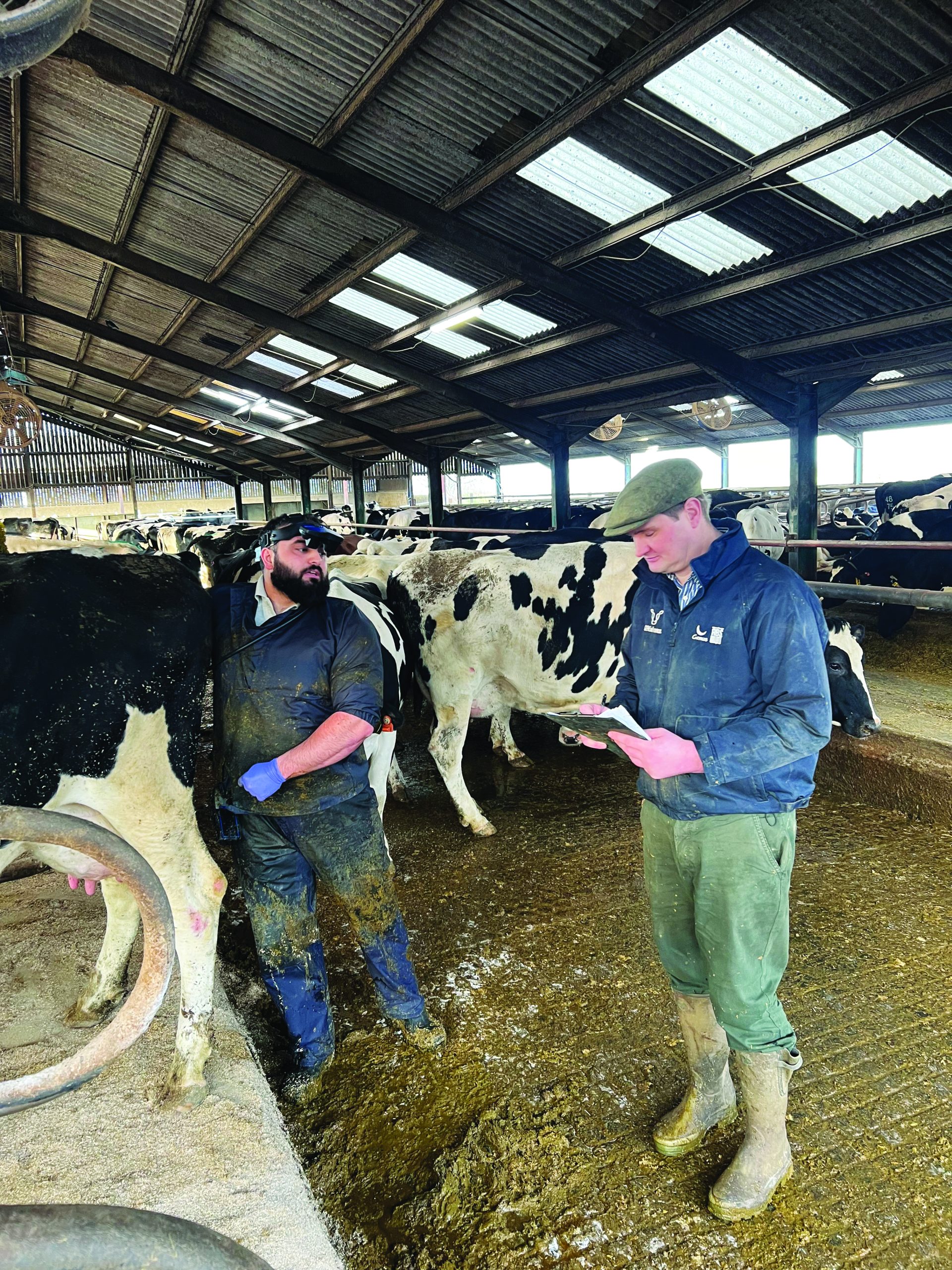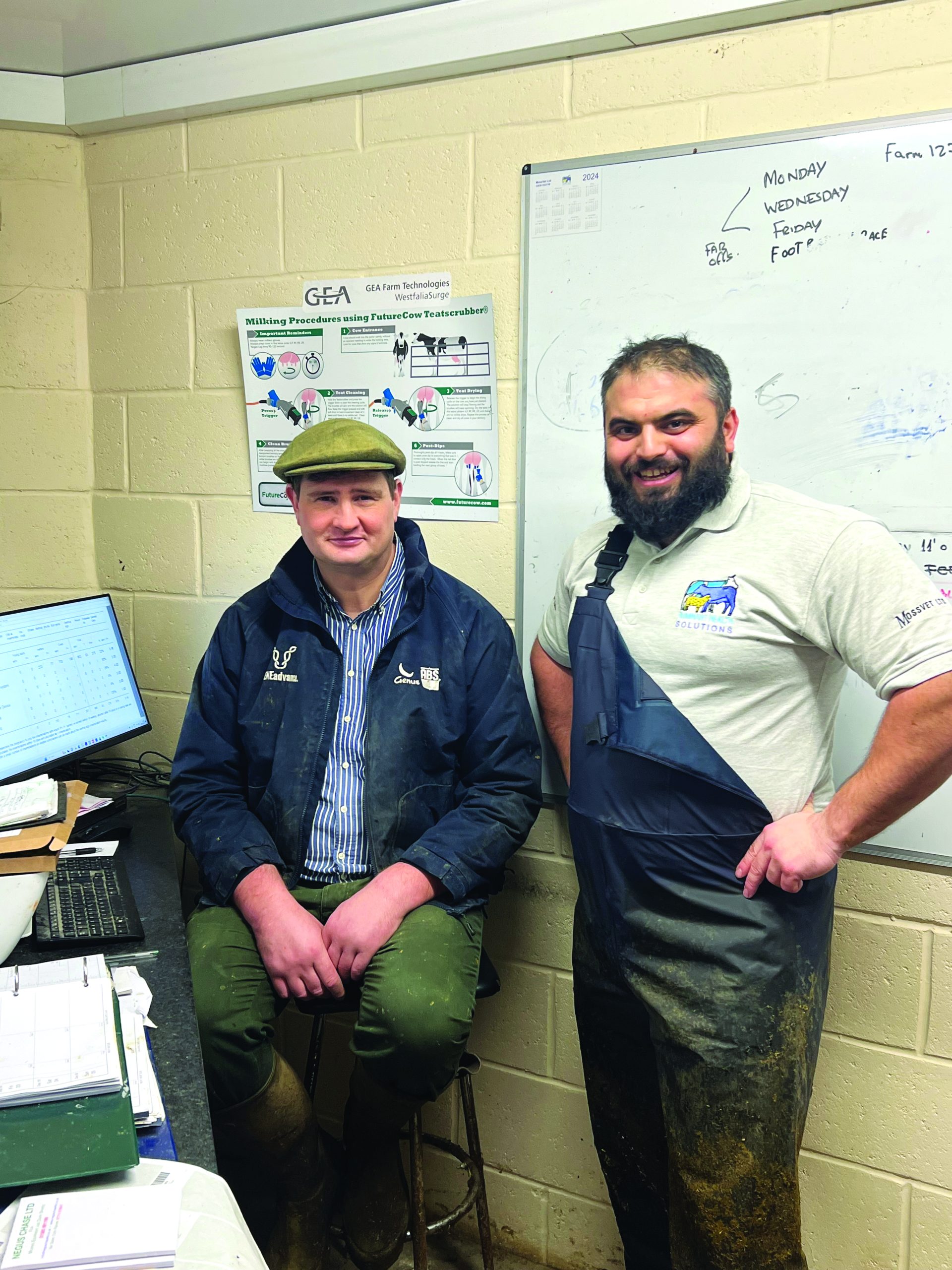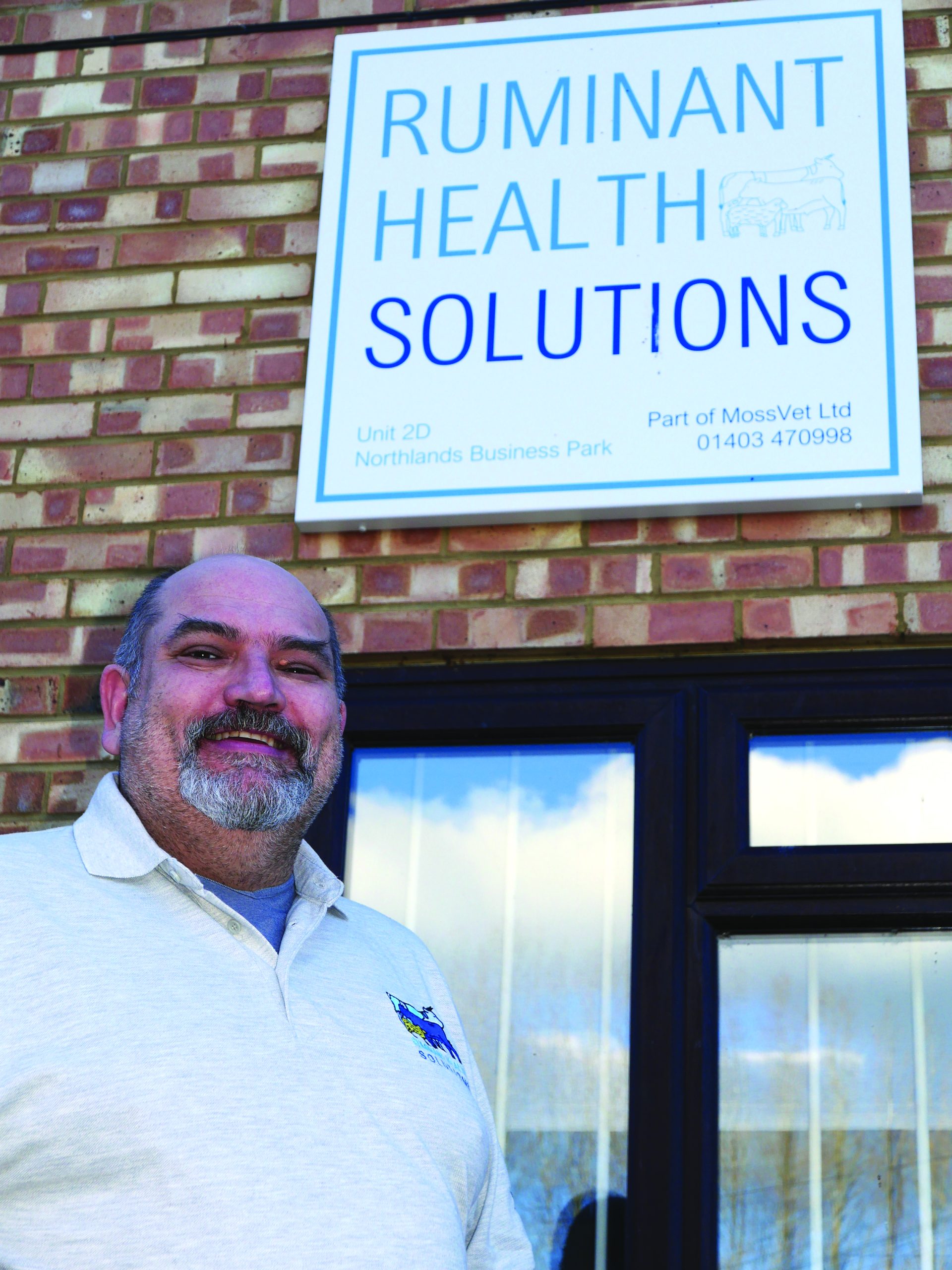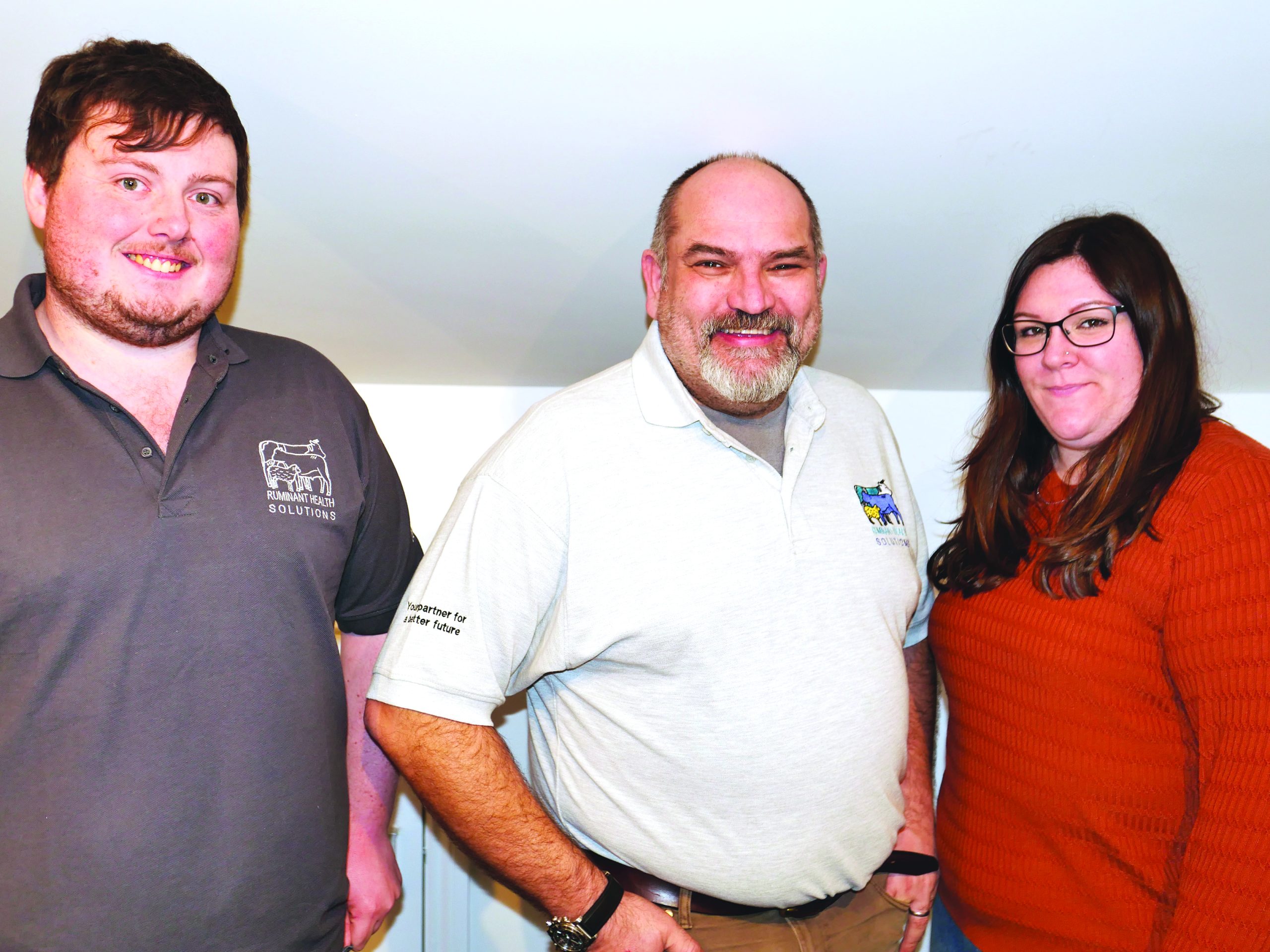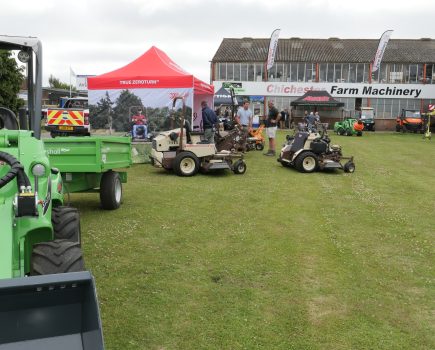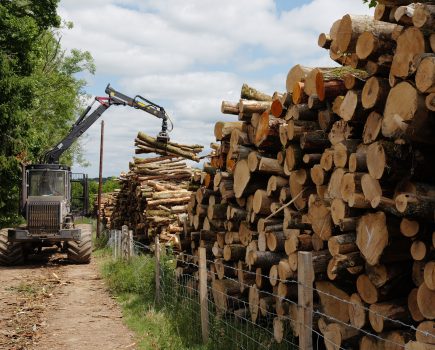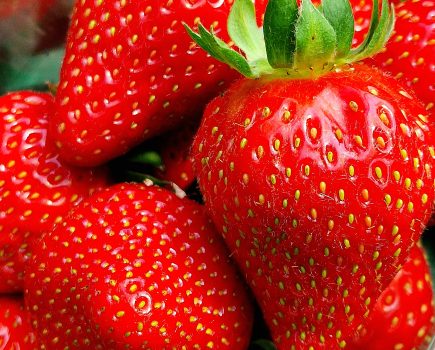While every vet’s focus will always be on the health of the animals he or she is caring for, Rob Drysdale knows that from a business point of view, the farmer has at least one eye on the cost of production.
Ensuring that the animal is giving as much milk, or putting on as much meat as possible, and that the whole set up of the business is keeping costs as low as possible was not high on the list of priorities in the James Herriot days of emergency vets dashing to the aid of sick animals, usually in atrocious weather and inevitably in the small hours.
Now, though, it is very much the priority, with the vet – in surveys regularly the most trusted on-farm adviser – able to give a far broader range of technical advice aimed at supporting the farmer’s bottom line.
And cost of production is something Rob, whose new business Ruminant Health Solutions has just opened a new office near Horsham in West Sussex, knows plenty about.
After finishing a Nuffield Farming Scholarship looking at dairy beef production, Rob and his wife Bonnie developed their own farming business, including a beef unit in Somerset, in 2015.
Although they spent several years building the business through a tough period for the beef industry, the Covid-19 shutdown ended the dream when big buyers like McDonald’s dropped out of the market and exports halted overnight.
While a difficult time for them, the experience highlighted the importance of keeping the cost of production low and outputs high and helped Rob understand the pressures facing farmers and their need to focus at all times on priorities.
“A vet might visit a beef farm and point out a number of relatively minor health issues or management changes that need to be tackled but then be disappointed on his or her next visit to find that the farmer hadn’t implemented all the suggestions,” he commented.
“In reality, though, that farmer will be under huge time and cost pressures right across the business. While they may want to take all the vet’s suggestions on board and understands the thinking behind them, they may not be able to do everything immediately. It’s about short, medium and long-term targets, and having been there and done that, I know it’s not easy.”
While Rob has a huge amount of experience with cattle, he’s also more than qualified to launch the new veterinary business, having set up a previous farm animal practice based in Warnham, just up the road, in 2000.
While he started out on his own, by the time the business was sold 14 years later it had grown to a 120-strong workforce, including 57 vets, and was operating from Cumbria to Cornwall and to Kent.
Ruminant Health Solutions is starting out at a more modest scale, but with a focus that is very much aimed at providing well-researched, data-backed technical advice to support the business alongside the usual hands-on help with sick or injured livestock.
Having launched as Bovine Health Solutions in 2021, Rob changed the name when industry friends pointed out that he was in danger of losing business from sheep farmers confused by the name. “We most definitely look after all ruminants,” he commented.
Rob has always believed that ‘transparent pricing’ is vital for farmers and vets to work together. “We need to keep medicines separate from the true cost of advice,” he explained, “Having the right product at a value the farmer sees as cost effective means not hiding excessive margins in the medicines.” He has now introduced that separation by prescribing and working in partnership with Mossvet Ltd.
Mossvet is based in Northern Ireland and has outlets in Eire and the UK. “The business has to keep prices keen, because if the farmers in Northern Ireland think they aren’t getting good value they simply hop over the border and buy them in the south,” he pointed out.
The link means that when a Ruminant Health Solutions vet discusses a vaccination or treatment strategy, he or she will prescribe any prescription only medicines through Mossvet for the farmer to purchase direct. “And if the farmer can source them cheaper elsewhere we will simply write them a prescription,” Rob explained.
“It means that they know what they are paying for the advice and can judge the value it offers. Nothing is hidden and the farmers can see we aren’t bumping up our prices while making an unreasonable profit on the medicines.”
The advice from Ruminant Health Solutions comes from Rob and his growing team, which includes vets Radu Morindau and Olly Giles alongside Devon-based Fiona Dolan. New recruit Jess Walker started as practice manager in February to further develop the medicine supply chain. With the business already growing steadily, there are plans to employ two more vets in the coming months.
While the advice will often be about animal health, it’s just as likely, under Rob’s innovative approach, to be about the quality of the silage or some other aspect of the farm management or systems that is reducing efficiency and making the business less profitable.
“The business of farming is more than the sum of its parts,” Rob explained. As an example, silage production and feed usage makes a big difference in terms of costs to the business and lost efficiency in milk or beef production. Making better home-grown feeds and using them more efficiently, perhaps in youngstock rearing or milkers’ diet, could be worth tens of thousands of pounds each year.”
It’s that kind of broader thinking that Rob believes will set Ruminant Health Solutions apart as a vet with an approach that is driven by helping farmers reduce their costs and increase their output as well as looking after the health of their livestock. “And it’s usually about management, not a new brand of fairy dust,” he added.
“Today’s farm vet needs to be more than just a health professional; we need to understand the production process and offer advice to the farmer that saves costs and maximises returns.
“The pandemic made it a tough few years for our beef business, but we learned an awful lot about the true costs of production and about grazing, forage, cropping, grassland management and so on,” he explained. “I realised that it’s all about incremental gains. If you make a small change that increases a cow’s output by a litre a day, it doesn’t sound a lot, but across a herd of 1,000 cows it makes a difference, particularly when you calculate it over a year.
“Farm animal practice is changing. The traditional income stream from supplying antibiotics is under severe pressure as farmers, and their customers, look for a new approach. Developing young vets also takes time and costs the practice in time as well as reduced income, while very few graduates are even looking to enter production medicine. Ruminant Health Solutions aims to develop farm animal vets within this changing profession.”
Building a team that understands costs and has the freedom to spend time with the farmer are key areas for the practice, with Rob believing that vets have much to offer in terms of developing closer relationships with farmers. “We spend a lot of time just chatting and getting to know the stock and the way the farm operates,” he explained. “The larger, more corporate, practices find it hard to cost that kind of activity because it doesn’t fit neatly into a charging category.”
As well as using Mossvet for prescription only vet-licensed medicines, Ruminant Health Solutions has close links with Barkers Animal Health Ltd for the likes of wormers and fly treatments alongside other products that vets routinely include in health plans and protocols.
Rob explained: “I have always wanted to have links with agricultural merchants, as the supply chain sometimes creates friction rather than cooperation that would benefit the farmer.
“Ultimately we are working together to marry excellent solutions and products aimed at improving health and production at the lowest possible cost.” This system has developed over the past three years, with the team from Barkers offering local service, products and deliveries through Ruminant Health Solutions.
“It’s also worth remembering the government support packages that are in place,” Rob added. “Farmers can access additional funds through things like the animal health and welfare pathway or the TB Advisory Service. There are funds we can use to help offset the costs of health planning, so if you need a visit towards your farm assurance, talk to us about doing it properly and making it deliver real benefits for your farm.
“Health plans used to be something that farmers updated a day before their Red Tractor inspection, just for assurance purposes. We want to change that so that health planning is an integral part of running a successful business.”
- Radu Morindau
- Taking a blood sample from calf’s nose for testing
- Olly checks the IgG levels from colostrum
- Olly checks the feed
- Watchingwell Farm herd manager Iain McGeoch checking data with Radu Morindau
- Vets Olly Giles and Rob Drysdale with Office Manager Jess Walker

